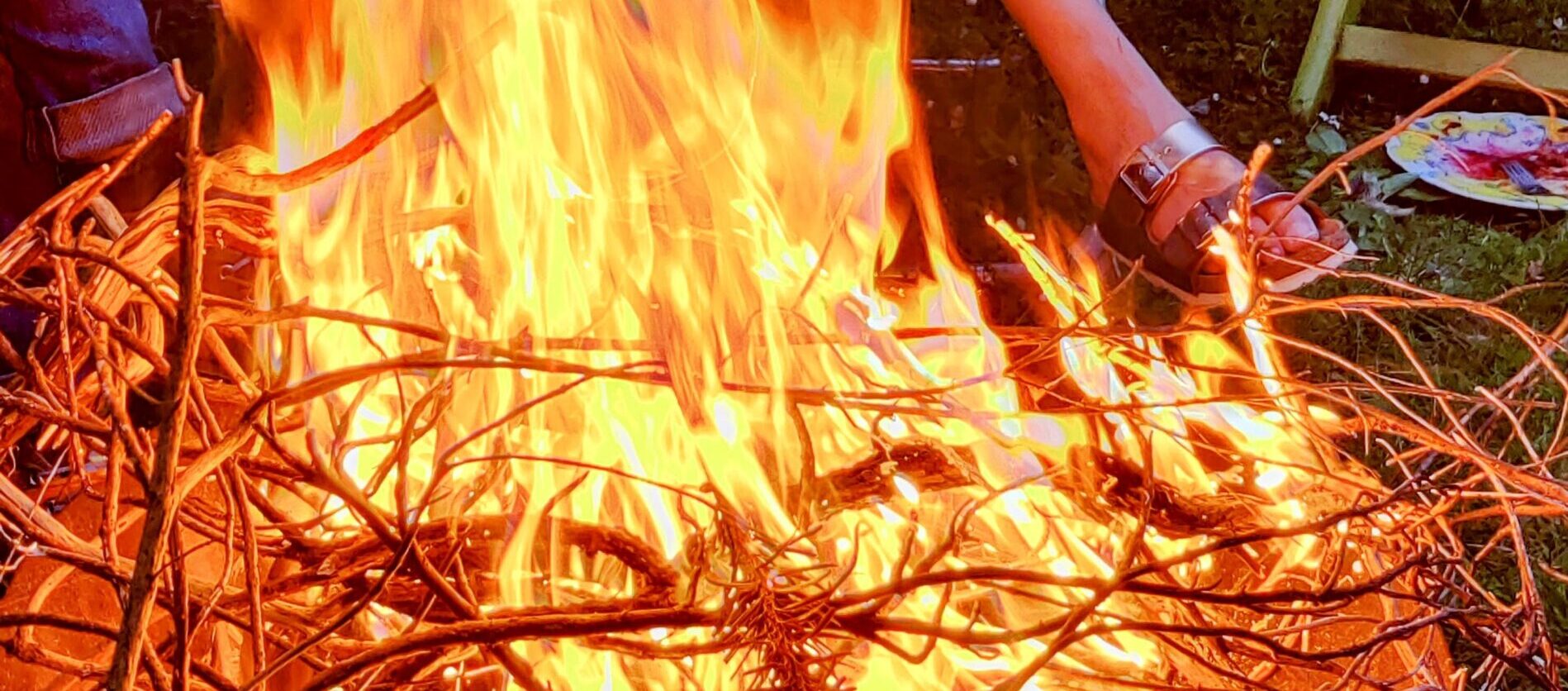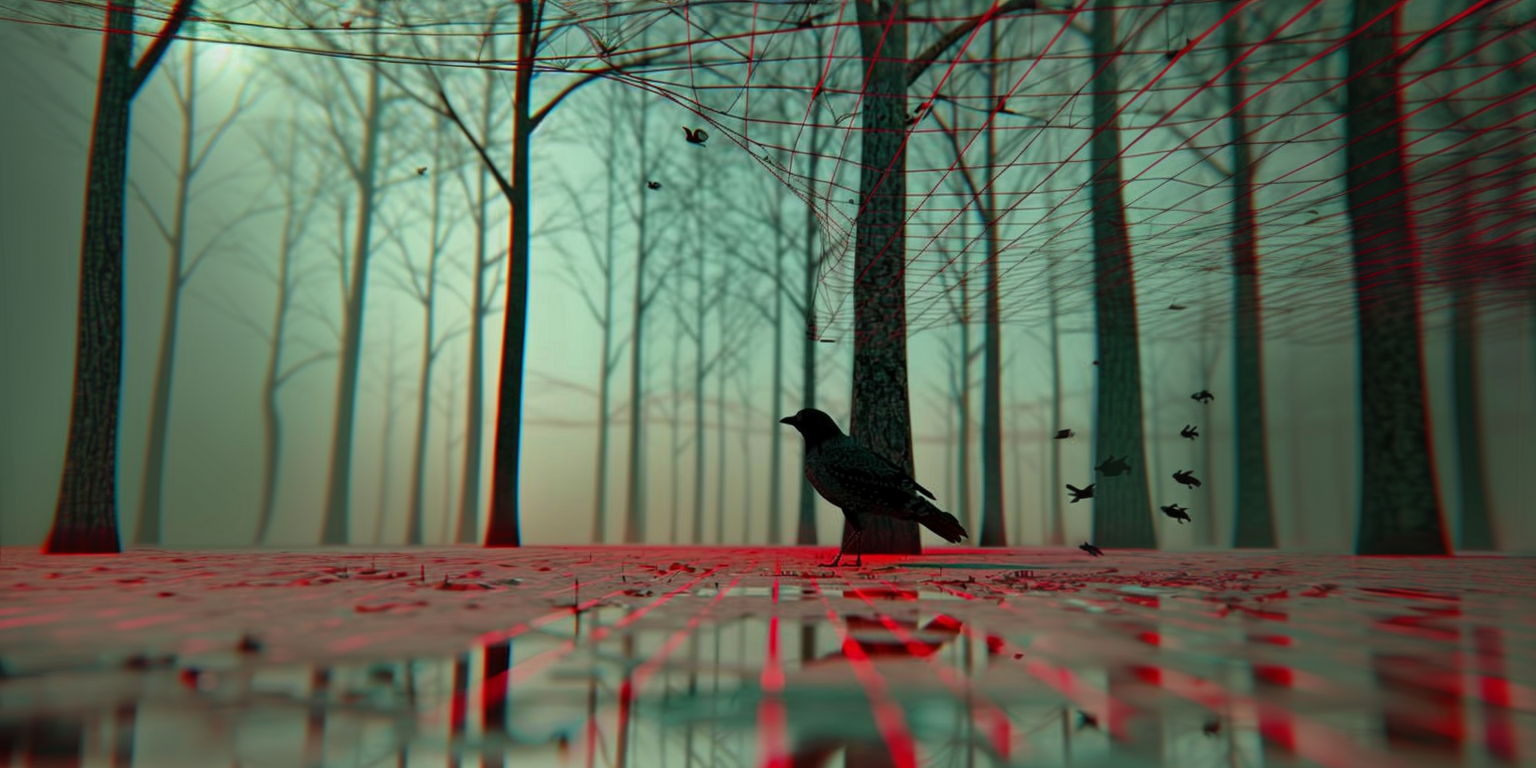
This is the continuation of a story that I related in my talk Transpersonal: Integrative Therapy for Past-Life Trauma. It concerned a tragic accident in which a 17 year old girl died, in 2004, in which my partner was involved. It all began with a psychedelic ritual, which was synchronistically held on the 17th anniversary of the accident, and ended as a ghost story. As the video relates, the concept of Weird Therapy arose out of those events, and this fed into my work with a client, Sam, who recalled several past lives, including one in which, as we later discovered, another innocent girl died in a car accident.
On 1st May 2024, on the 20th anniversary, we held a grief ritual with a few friends to acknowledge the event and remember the girl who died. This was the first time it had been marked in this way, and we experienced a lot of uncertainty about doing the ritual, and preparations were a bit chaotic.
The ritual itself was simple. We circled around a fire bowl in the garden. We each walked around the fire, picked up a branch of the dry Christmas tree I’d chopped up, and put our branch into the fire. The first branch was for the girl who died. The second we offered was for my partner Lizzie. The third was for her brother, who had been present at the accident, and all of the others whose lives had been affected by the girl’s death. The branches instantly blazed up with a furious energy.
It felt awkward and slightly silly, but also necessary. At one point I said, “I feel an emotion in me that I can’t name”. It felt like an altered state of consciousness.
All the time my six year old daughter was running around the outside of the circle, or bouncing on the trampoline, screaming and shouting. She was repeatedly asked to be quieter, and she seemed to come out of a trance for a moment before starting again.
Then it was over. We went inside to get some food, and returned to the fire, where we found Lizzie reading a long message from her brother. She had texted him earlier in the day to say that we were holding a ceremony, and asking if he had any memories or photos of her. The message arrived just as we ended, and was a huge outpouring of grief. This was a great surprise, as he has always been silent and emotionally shut-down. He spoke warmly of her love of grungy dark music like Blink 182 and Slipknot. He sent two pictures of her, that he had kept on a series of computers over the years.
When I saw the pictures, showing a slim girl with a fierce smiling energy, I wasn’t in the least surprised. I did already know her.
When I spoke to my daughter a few days later about how she was on the trampoline, she said, “there was something in my head that I didn’t know, making me excited”. She couldn’t explain further, but it confirmed the impression we already had, that the dead had come to visit. We also had a strange experience where a light bulb next to her turned off for a few seconds, then on again for a few seconds, and repeated. This reminded me of the original manifestation that I spoke of in the video, my smoke alarm going off as I wrote the dead girl’s name in my diary. Things have been quiet since then: I feel she enjoyed giving me a scare.
Aside from the paranormal aspect, and more important I think, was the way that the grief ritual re-opened a channel of communication between Lizzie and her brother. When the dead had been honoured, they could speak. The taboo of silence shattered, and love and connection began to be restored.
This has made me want to do more of this work. Who else needs a grief ritual? Perhaps more accurately, who doesn’t? Modernity creates a culture of silence around grief and loss. This goes deep in the British psyche. The Blitz Spirit: clean up the glass and the blood, and carry on. “Least said, soonest mended”. Keep Calm and Carry On. And the great problem with this so-called “dignified” attitude is that we are expected to deal with our grief alone.
I’m not an anthropologist, but I have the strong impression that nearly every other culture in the ‘amodern’ world does things differently. According to the Mayan writer Martin Prechtel, grief and praise are two aspects of a single thing: if we don’t grieve a loss, it suggests that what we lost meant nothing to us. According to Prechtel, the consequences of this repressive assault on grief can be found in the epidemic of depression and other ‘mental illnesses’ that we find in the modern world.
Another way to describe it is that we are all haunted by the ghosts of the past.
A personal example illustrates this for me.
About five years ago, I attended a Family Constellations workshop with a Polish-speaking woman facilitator. I was troubled about my relationship to my children, which seemed to hold a lot of pain for me. She tried to explore this, and found no clear answer. She asked a friend of mine who was there to represent a ‘missing thing’. Then she asked everyone present to form a line in front of the missing thing, and he walked forward, putting his hands between the third and fourth people in the line. She said that there was a dead male child in the family history, which was a secret, and she said that “ever since this happened, the women in this family cannot love”.
Soon after that I had the opportunity to ask my mother and aunt about this, and they told me that their maternal grandfather had been previously married to a woman who died giving birth to boy, who also died. He remarried, this time to their grandmother, and she had forbidden any mention of the first wife or her child. When I said to them what the Polish woman had said, they seemed surprisingly accepting of the fact that they were indeed unable to love. An ungrieved loss leads to an inability to praise, in Prechtel’s description, and this passes down the generations.
The final thing to say is that the key to unlocking the grief is to return it to the collective. Grief is locked away by making it individual; it can only be released by making it shared. That is why we have to have grief rituals, where people who care about our feelings are willing to come and share our loss with us. We can’t do this work alone. If things are going well, we can be alone and isolated. But when loss comes, we need support to grieve it, or it will destroy us. If we don’t have the support, we may go crazy, or die of a broken heart, or – more likely – we may choose to find a way not to grieve, to “move on” as if the loss didn’t matter to us.
Our society gradually becomes constituted of people who took the second option, and their descendants.
And now, in the Age of Extinction, those people who have never been taught to grieve live their lives as if there is nothing to grieve, no loss in the countless species dying out, no loss in the coral reefs as they bleach, no loss in the disappearance of the insects, no loss anywhere. We have forgotten how to praise and love this world, and we feel nothing as it slips away. The capitalist system feeds us the comforts and conveniences we need to help us forget, and it does this by its ever more efficient processing of the natural world into mere material for those comforts.
To quote the final lines of Bob Dylan’s ‘The Lonesome Death of Hattie Carroll’,
Oh, but you who philosophize disgrace and criticize all fears
Bury the rag deep in your face
For now’s the time for your tears.
Copyright © 2022 My Sunset by Bogdan Bendziukov.





1 thought on “A Grief Ritual”
Comments are closed.